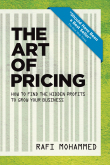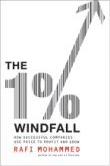Universal Music Group v. Steve Jobs: the Battle Over Price Has Started!
Sure…last week’s Live Earth concerts were fun. But in my opinion the real fireworks in the music industry was the Universal Music Group’s (UMG) decision to not sign a long term contract with Apple’s iTunes store to sell its music digitally. UMG is still allowing iTunes to sell its music, but the contract is “at will” – meaning that UMG can stop supplying some (or all) of its artists’ songs whenever it pleases.
What would cause UMG, the world’s largest music company, to aggravate Steve Jobs (whose iTunes is responsible for roughly 12% of global music revenue)? You got it…it’s all about PRICE. Today, iTunes retails songs for 99 cents a piece and for each song sold, music companies receive roughly 72 cents.
The issue is really straightforward: music companies like UMG and the Warner Music Group want their songs to be priced based on value. Depending on their value, some songs should be priced higher than others. I think we can agree that The Beatle’s “Sergeant Peppers Lonely Heart Clubs Band” is more valuable, hence should be priced higher, than say Rick Dee’s “Disco Duck.” It’s simple: hits should be priced more than non-hits. I’d also suggest that classic hits (not just today’s best sellers) should be premium priced and there may be room to adjust prices by genre.
Steve Jobs’ pricing strategy is very clear – he’s running a classic razor/razor blade pricing strategy (a strategy that Kodak is trying to emulate). Jobs’ pitch to consumers is buy an iPod or iPhone and a key benefit is cheap music – he’s succeeded in getting music companies to 99 cent commoditize the songs of their wildly eclectic artists.
A friend of mine likes to argue that pricing all songs at 99 cents makes it easy for consumers. While probably true, this doesn’t necessarily mean it’s the most profitable pricing strategy. For example, a few years ago I noticed that my favorite Boston tavern priced all of its draft beers the same…$4 bought you a domestic Pabst or a high-end import like Pilsner Urquell. After patiently listening to my unsolicited value pricing advice (“customers value premium imports higher than domestics”), the friendly proprietor cheerfully responded “Rafi, $4 is easy for my customers to know and I don’t want to have to deal with providing change in quarters.” Undeterred, we did a quick pricing analysis and discovered that setting beer prices based on value would increase his profits by over $35,000 annually – that’s a lot of hidden profits for a 75 seat tavern. Sure enough, the next time I ordered my favorite import beer, I noticed the price had increased $4.50…how come no one ever grandfathers the old “pre-Rafi” prices to me?
So…who is going to win the Universal Music Group v. iTunes pricing standoff? I’m putting my money that value pricing will prevail and soon you’ll see a variety of song prices on iTunes.
*Note: Apple recently started employing value-based pricing by offering select $1.30 priced songs that offer unlimited copying (the 99 cent priced songs restrict copying).




